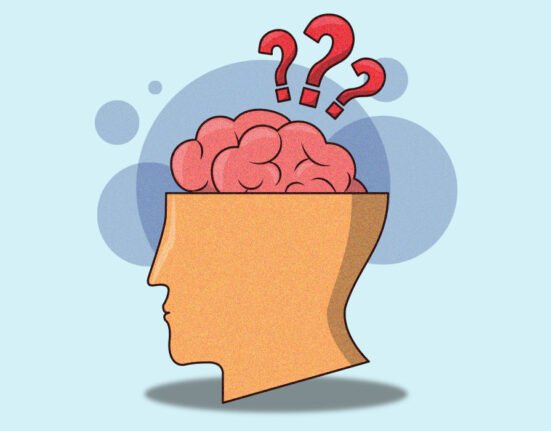A client visits Ramya for counselling. She says that she used to self-harm and doesn’t want to inform her parents. Ramya is very confused about whether to inform her parents or not. Will it affect her ethical values or not? This is major confusion for the budding counsellors these days. Once they get a few experiences from their profession, these Mistakes can be avoided.
What Are Ethical Dilemmas?
Ethical dilemmas can be defined as when a conflict arises between two or more ethical principles or values, and it Does no clear solution. In simple words, it can arise when the counsellors have to choose between Actions that can be good and bad. It’s like sacrificing one ethical rule to protect the other. (MHI: Mariwala Health Initiative,n.d).
The American Code of Ethics (ACE) has provided the American Counselling Association (ACA) with some guidelines that provide and value the counsellors, help with client well-being and professional integrity. They are Autonomy (respecting the client’s choices), Justice (providing fair and equal treatment), Beneficence (promoting the client’s well-being), Nonmaleficence (avoiding harm at all costs), and Fidelity (being honest and trustworthy). (ACA Code of Ethics, n.d.)
Read More: Ethical Dilemmas in Psychological Testing
How To Identify the Ethical Dilemmas In Counselling?
Ethical rules play a crucial role in counselling because they give clients the confidence to open up about their problems. When clients know that they have a safe space to share, they feel happy and have a lot of trust in the counsellor. But this trust is broken by the counsellor, which creates ethical problems and can harm the relationship between them. This affects the therapeutic relationship and shows a greater impact on their well-being. Some of the ways to identify ethical Dilemmas are:
Read More: Ethics in Counselling
1. Informed Consent
You are attending an online session with your counsellor, and one day you see a course on the website. When you try to click and watch, you see yourself in a blurred picture, mentioned as “before and after therapy “. – It is seen as a way of not informing you. In counselling, this is known as ‘informed consent “. Where the counsellors don’t get any prior consent about your personal data, they may take videos during the session. If your counsellor has published it with your consent, it is OK; if not, you have the right to complain. A recent survey shows that some counsellors on social media publish clients’ personal information without consent, creating distrust, power imbalances, and other issues for the client. (White&Hanley,2023)
2. Violation Of Confidentiality
You are going to your counselling session and mistakenly spoke the truth about having cheated on your husband. When his relatives call the counsellors, regarding the report, and the counsellors share all the data you said. – “This is a violation of confidentiality, one of the most important ethical rules in counselling. Sharing private information without consent not only breaches ethics but also makes the client lose confidence in the process.”
3. Countertransference
The therapist meets a girl who experiences anxiety and asks him about the counselling fee, and the counsellor agrees. The counsellor has seen this girl on many social media accounts and visits her informally at all times. – It is known as “Countertransference “. Even though the counsellor has a life, they still engage in an unethical relationship, which deeply affects the Counselling session and affects the client’s well-being too.
4. Unwillingness To Terminate The Therapy
When a therapist worked on a client for more than 2-3 years, and finally resolved his problems. Now the counsellor faces financial issues and keeps saying to the client, “You are not feeling well, you still need to come for 5 more sessions “. To stabilise his finances, the counsellor keeps calling the client—this is known as ‘unwillingness to terminate the therapy’. As explained before, the counsellors remain in contact with the client for his benefit and do not allow termination, which can lead to Severe problems. (Ethical Issues in Counselling: 4 Red-Flag Examples, n.d.)
Read More: Choosing the Right Therapist: Red Flags You Should Never Ignore
How To Work On Ethical Dilemmas In Counselling: For Counsellors
To work on ethical dilemmas, there is a seven-step decision-making model that helps you to understand your problem and the ways to solve it. This was given by Luke, Goodrich, & Gilbride in 2013. The steps are :
- Identifying the problem: Find out your problem and clearly define it. Ask yourself whether this issue involves you, who else is involved, and what potential causes you have experienced.
- Applying the ACA code of ethics: Find out in what ways the person has hurt you, and which code aligns with it. Is it with technology, or for their personal issues (financial)and more? Clearly defining it can give a greater perspective of the problem.
- Find out the nature and causes: Examine what type of ethical rule the counsellor has broken. Is it autonomy, confidentiality, justice, or benevolence? Consult with other counsellors and draw inferences.
- Generate the potential course of action: In this stage, you should come up with creative and innovative ideas. And should also prioritise your well-being and may ask for help from your colleagues or experts, regarding the issue.
- Consider all the potential consequences: Explaining what the potential causes you have experienced for the past few months and how they created a great impact on you. Evaluate how you got disrupted from your personal values and principles, and eliminate options that cause harm or injustice.
- Evaluate the course of action: Always evaluate the situation based on three things. Whether you want to receive the same response in similar situations. Whether you want to raise your issue publicly. You recommend a course of action to help others. Based on three statements, you should evaluate your course of action.
- Implement the course of action: Once you implement it, you will receive the proper treatment from your healthcare provider, which will strengthen your plan. (Forester-Miller et al., n.d.)
These seven steps can be very useful in handling the situation in a very handy way. It will help both the counsellor and the client, and develop overall well-being.
Conclusion
To identify the ethical dilemmas as a client, it doesn’t have to be studied. We can observe it in day-to-day life. When we experience any kind of ethical dilemmas, such as loss of trust, countertransference, termination period, and so on, we should inform the other healthcare professionals and solve the issue. And when the Counsellor experience this issue, they can follow the seven-step decision model to understand the problem and get it resolved. Ethical dilemmas may arise at times, and we as clients should be aware of them.
Read More: The Need for Mental Health Professionals on a Global Scale
FAQ
1. What are ethical dilemmas?
Ethical dilemmas occur when a counsellor faces confusion between two ethical principles and no clear solution exists. For example, when a girl shares that she is loving someone, she also mentions not to tell anyone. But when her family members ask the counsellor, it creates confusion . Whether to say or not.
2. How does it affect the client and the counsellor?
It affects the client by making them feel unsafe, less open to sharing their thoughts and emotions, and doubtful about the counsellor’s integrity. And the counsellor faces issues with the client, and in many cases, cannot continue practising.
3. How to identify that my relationship with the counsellor is not right?
To identify, see whether your counsellor speaks to you even when you feel alright and keeps stalking you on all social media. Just to have a conversation with you, and implies that you didn’t feel good, you need to come to a few more sessions.
4. Are there any steps for the counsellor to resolve the issues?
As mentioned above, the counsellor can follow the seven steps of the decision-making model by Luke, Goodrich, & Gilbride in 2013. Applying the ACA Code of Ethics involves first identifying the nature and causes of the issue, then generating possible courses of action. Weigh each option by considering its potential consequences, then evaluate which choice best upholds ethical principles and promotes client welfare. Finally, the counsellor implements the selected course of action with accountability and care.
5. Is there any example to understand the concept perfectly?
When a college student received counselling from a counsellor for 3 months, they started to notice that the counsellor began acting strangely. This includes calling her to come to the session, meeting her at multiple places, and following her on the social media she uses. At first, she thought it was normal, but after a few weeks, fear set in, and she filed a complaint. And once the problem is solved, clients receive good treatment from another counsellor, causing the original counsellor to lose their job.
References +
Forester-Miller, H., Ph. D., Davis, T. E., Ph. D., American Counseling Association, & The Center for Counseling Practice, Policy, and Research. (n.d.). Practitioner’s Guide to Ethical Decision Making. In Practitioner’s Guide to Ethical Decision Making (pp. 1–2). https://www.counseling.org/docs/default-source/ethics/practioner-39-s-guide-to-ethical-decision-making.pdf
White, E., & Hanley, T. (2023). Current ethical dilemmas experienced by therapists who use social media: A systematic review. Counselling and Psychotherapy Research, 24(2), 396–418. https://doi.org/10.1002/capr.12678
ACA Code of Ethics. (n.d.). CALPCC. https://calpcc.org/pages/aca-code-of-ethics#:~:text=The%20ACA%20Code%20of%20Ethics,standards%20of%20practice%20for%20counselors. Ethical Issues in Counselling: 4 Red-Flag examples. (n.d.). https://domental.com/blog/ethical-issues-in-counseling
MHI : Mariwala Health Initiative. (n.d.-b).https://mhi.org.in/voice/details/safeguarding-client-and-counselor/#:~:text=Ethical%20dilemmas%20may%20be%20understood,between%20two%20values%20or%20principles.













Leave feedback about this